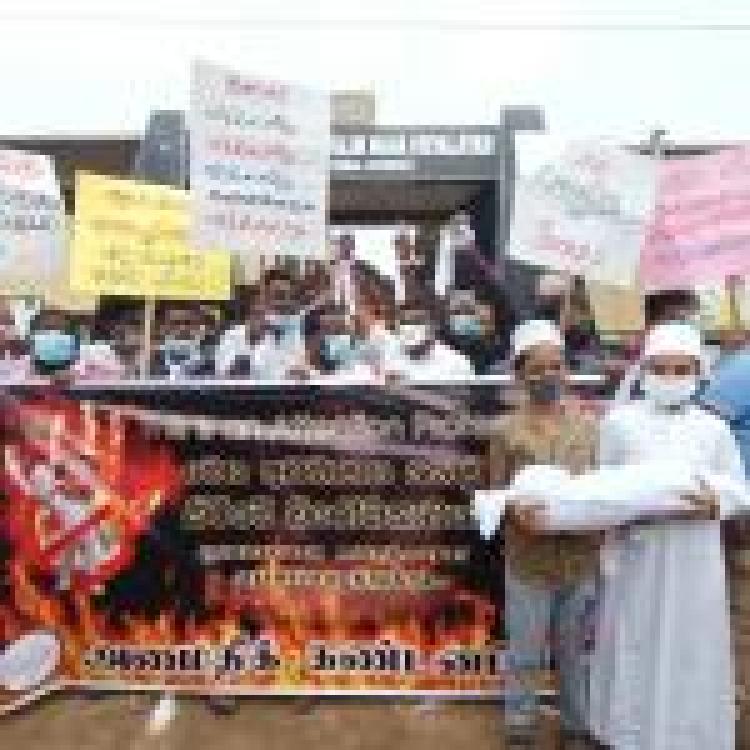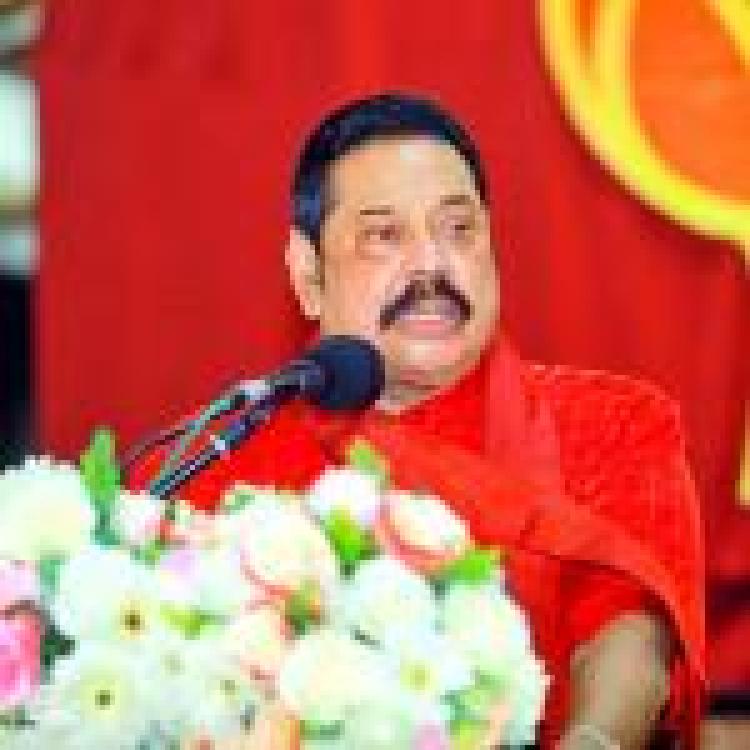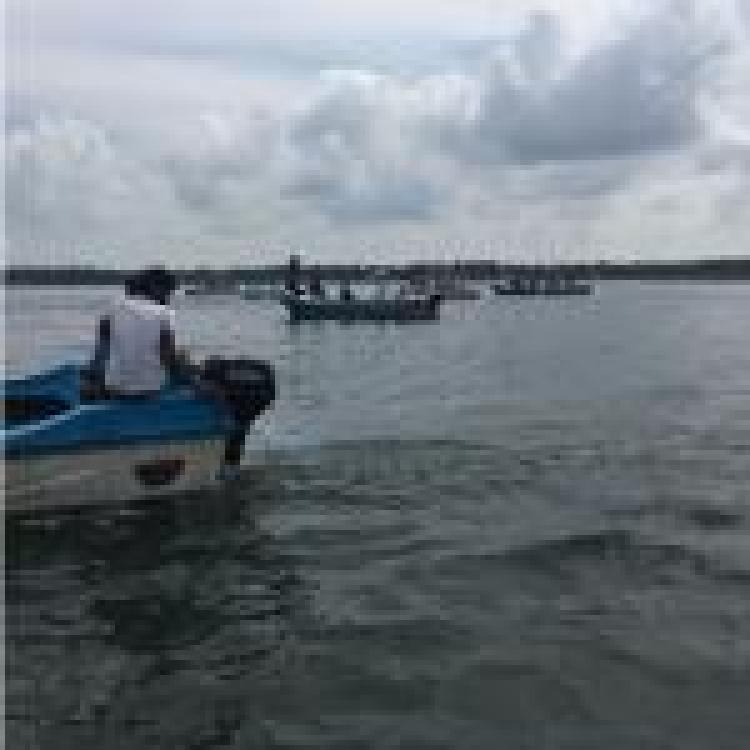
File photo: Tamil villagers in 2018 protest against military occupation in Iranativu
The Sri Lankan government has designated Iranaitivu, the island reclaimed by Tamils in 2018 after more than 25 years of military occupation, as the burial site of COVID-19 victims.
The decision has been widely criticised and described by many as a cruel ploy by the government to induce tensions against the Tamils and Muslim communities regarding the forced cremation issue.
Former Senior Lecturer in Law at University of Jaffna, Dr Kumaravadivel Guruparan voiced his concerns over the decision:
Correct. The intention is to divide the new found solidarity between the Tamil and Muslim communities on the very same issue that brought them together. https://t.co/iLQDwOlLds
— K. Guruparan (@rkguruparan) March 2, 2021
Several others also expressed their serious disapproval to the government’s latest ingenious strategy to appropriate Tamil land as a dumping ground and also force many Muslims to travel far from home just to bury their dead.
“This is a ridiculous and insensitive decision,” stressed president of the Muslim Council of Sri Lanka, Hilmy Ahamed. “This is an absolute racist agenda. The saddest part is it’s almost pitting Muslims against the Tamils living in those areas.”
Father Madutheen Pathinather, a priest on Iranativu island also emphasised the community was “deeply pained” by the decision. “We strongly oppose the move. This will cause harm to the local community.”
He added that there will be a protest on Wednesday as they oppose the decision and are deeply upset they were not consulted regarding the decision.
“It causes great agony that actions have been taken without any permission from us. This evening, tombstones were established and flags were also installed. We are opposing this move not on a religious basis but rather with the intention that everyone be saved from coronavirus.” pic.twitter.com/lVsmJOOKtP
— Tamil Guardian (@TamilGuardian) March 3, 2021
The Sri Lankan navy in 1992, displaced at least 242 families. On May 1 2017, Tamil villagers protested defiantly to reclaim their land. By mid-May, the military stated that the villagers could resettle but they would retain 9 acres of the land to maintain their camp but neither the government or local authorities had taken steps to support their resettlement despite high profile calls for action. Many Tamil villagers sailed back to their homes and bravely insisted they would not move until their land was presented back to them, despite risking repercussions from the Sri Lankan military for their resistance.
The government claimed that the Irainativu island, located in the Gulf of Mannar some 300km from the island’s capital, Colombo, has been chosen because “it is thinly populated”.
BBC’s World Service South Asia regional editor, Anbarasan Ethirajan added that the latest announcement “is seen as nothing but adding to insult”, after the Sri Lankan government finally announced it was ending mandatory cremations, following extensive backlash.
After persistently ignoring World Health Organisation (WHO) guidelines stating that COVID-19 victims are safe to bury, the Sri Lankan government insisted that the burials would supposedly contaminate groundwater.
The accelerated measures now to lift the burial ban coincides conveniently whilst the 46th United National Human Rights Council session are in progress, in which Sri Lanka has been noted for its mounting human rights concerns against its marginalised communities.



